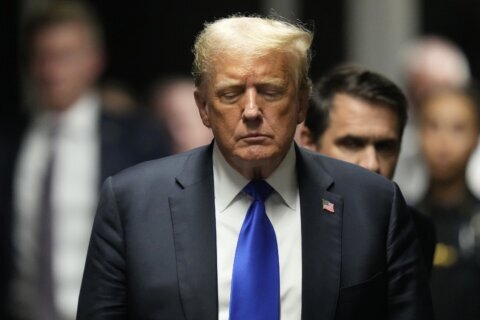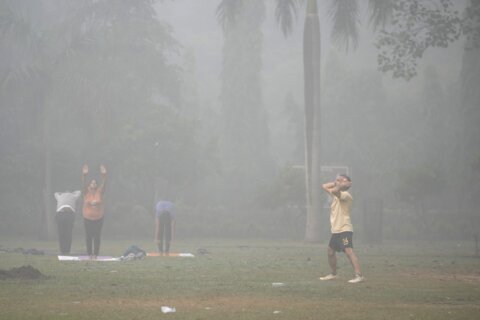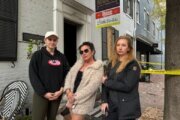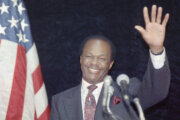If your attention is on the U.S. presidential campaign or the Paris Olympics, you’re probably missing one of the most significant political dramas in the world right now. After years of oppressive authoritarianism and in the face of overwhelming obstacles, the Venezuelan people turned out in historic numbers this week to turf out their historically bad leaders.
Venezuelans resoundingly voted on July 28 to reject longtime President Nicolás Maduro and the failed and impoverished socialist project that Maduro inherited from his predecessor, the late socialist-populist Hugo Chávez. The people voted instead for the more hopeful vision of economic transformation and social revitalization espoused by Edmundo González Urrutia, a little-known former diplomat who joined the race belatedly when a popular opposition leader was banned from running.
So far, the Maduro regime is refusing to accept the results. Despite numerouspolls anticipating a landslide victory for González and independent exit polls that showed him winning, the regime loyalists who control the National Electoral Council declared Maduro the victor. They have refused to release official vote totals despite the legal requirement to do so, and have ignored calls for transparency from the Organization of American States, the United States and other nations.
The Venezuelan opposition collected and released records from its own poll watchers at more than 80% of precincts, which indicate their overwhelming victory. Protests erupted against Maduro’s attempts to falsify the results — and the regime has responded with force. The fight for democracy is now moving from the voting booth to the streets, where at least 17 protesters have been killed in clashes with authorities that began the day after the vote. Injuries are approaching 100, and more than 1,000 individuals have been detained, according to official figures.
The Maduro regime is well-practicedat fixing electoral oddsin its favor, but they have miscalculated this time. Twenty-five years ago, Chávez launched his popular vision of broad wealth redistribution, funded by Venezuela’s oil exports at historically high prices. Chávismo lost its luster when oil prices dropped a decade ago and Maduro, Chávez’s uncharismatic successor, turned more oppressive. The nation is now exhausted, economically decrepit and anguished.
Some 8 million citizens — a quarter of the population — have left the country in the last 10 years, dividing families and depopulating communities. The opposition has been harassed, intimidated and infiltrated for years by regime agents, but was able to organize and hold a primary that unified disparate voices behind one individual, former legislator María Corina Machado.
When it became clear that Machado could win, authorities disqualified her from running, as they have done to others in the past. So a few months ago, the opposition registered a last-minute replacement, González, behind whom Machado threw her full support, personal credibility and campaign energy. Her inspirational message of change to a downtrodden nation has been electrifying, galvanizing mass rallies and unprecedented voter turnout last Sunday.
The regime has tried everything to disrupt challenges to their rule. They jailed opposition leaders and exiled and harassed others, some of whom were forced to seek asylum in Argentina’s embassy in Caracas. They took steps to complicate the voting process. They printed ballots that were intentionally confusing. They used intimidation and other techniques to suppress the opposition vote, including disenfranchising millions outside Venezuela. They refused to accredit qualified election observers from the European Union, instead welcoming international supporters to “accompany” the vote. They muzzled the press before the elections to reduce opposition coverage.
The Atlanta-based Carter Center deployed 17 experts and observers a month before the elections, and that group concluded this week that Venezuela’s election “did not meet international standards of electoral integrity and cannot be considered democratic.” So what happens next?
[READ: A Fresh Foreign Policy Test in Venezuela]
The burden falls on the Venezuelan people. Those who protest face intimidation and risk their lives and livelihoods. International leaders have issued communiques and condemnations of the regime. Some have recalled their diplomats in protest. Peru has recognized González as the elected president. But all of this makes little difference when security forces crack down on protesters and round up opposition leaders.
The balance of power rests with the military and security forces, as is so often the case. So far, the military leadership — indoctrinated into the corruption and criminality of the regime, and closely monitored by Cuban advisors — remains loyal to Maduro.
But not all military, police or irregular “colectivo” goon squads enjoy the bounty from the corrupt plunder of Venezuela’s abundant natural resources. They and their families live in a deteriorating economy, with despair around them. There is hope they might refuse to obey orders to fire on unarmed citizens protesting the fraudulent election. If the regime can’t put down protests, it could be under real threat of survival.
If not, the United States and neighboring nations will face a fresh migration crisis as millions more desperate Venezuelans will seek safety abroad. The Venezuelan people have shown they are willing to take risks for democracy, including going to the polls in historic numbers when voting for the opposition in an authoritarian country is itself a subversive act. People power has felled dictators around the world, and it could do so again in Venezuela. The people who voted for change deserve our strong and full support.
Eric Farnsworth is vice president and head of the Washington office of the Americas Society/Council of the Americas, a nonprofit forum and business council committed to democracy and broad-based development throughout the Western Hemisphere. He previously worked for the State Department, the office of the U.S. Trade Representative and the White House.







